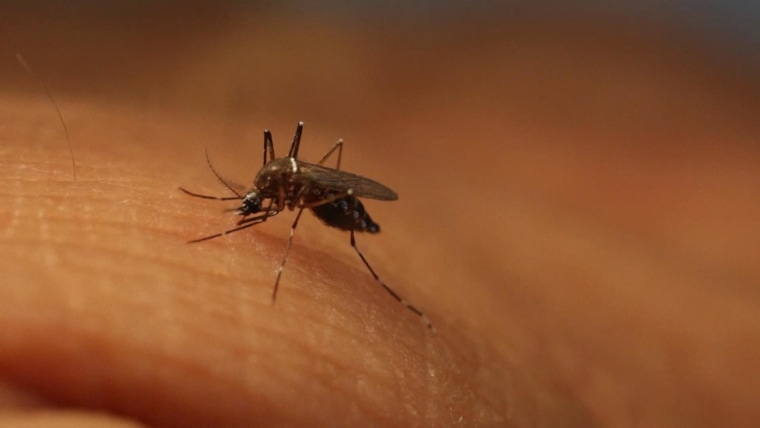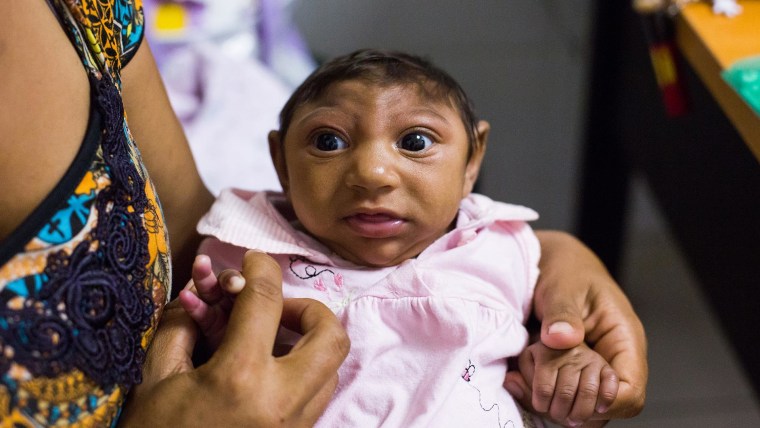
Zika has now spread locally in Florida and Texas, infecting more than 200 people presumably bitten by local mosquitoes. The virus has infected hundreds of thousands, if not millions, of people across Latin America and thousands have carried it back to the U.S.
Mosquito season is done in most of the northern hemisphere but it’s still hot in the Caribbean and it’s late spring south of the equator.
Here’s what’s known about who should worry about Zika virus:
Pregnant women
By far those at the highest risk are pregnant women. Zika causes a range of birth defects, from brain damage so profound it causes the pregnancy to miscarry, to horrifying cases of microcephaly, to subtler defects of limbs and joints. It’s not yet clear what percentage of pregnant women go on to have babies with birth defects, but studies show pregnancies in all three trimesters can be badly affected. Women who never remember having had symptoms have had their babies affected, as have women who suffer rashes and muscle aches. Doctors now caution all pregnant women to stay away from places where Zika is spreading if at all possible, and if not, to wear mosquito repellent, to cover up with long sleeves and pants, and to stay inside with air conditioning as much as possible.
Women who don’t live in areas where Zika can spread can relax a little but should remember that Zika can be spread sexually and that people can come back infected from Zika zones.
Related: She’s pregnant and worried about Zika
Partners of pregnant women
Zika is spread sexually as well as by mosquitoes, so any sex partner of a pregnant woman, or a woman who might get pregnant, needs to take precautions. The Centers for Disease Control and Prevention advises that men who may have been infected use a condom for the duration of a sex partner’s pregnancy. Women who may have been infected need to put off getting pregnant for at least eight weeks and because the virus can live in semen for six months or longer, men who may have been infected should avoid unprotected sex for at least that long. Zika doesn’t always cause symptoms so people need to be aware that if they’ve been somewhere that Zika is spreading, it’s possible they were infected and did not notice.
Women thinking about getting pregnant or who might get pregnant accidentally
Close to half of all U.S. pregnancies are unplanned, so it’s important for all women of childbearing age – and their sex partners — to be aware of the risk. The Aedes mosquitoes that spread Zika can sneak around, unnoticed. “It bites stealthily. It sneaks up on people quietly and bites them on their ankles,” noted CDC Director Dr. Tom Frieden. Aedes live year-round in much of the southern coastal states and in the summer in 25 states, as well as in many vacation areas in Latin America and the Pacific.
And Zika can be spread by all kinds of sex, so people are at risk from travelers to those regions, as well. “We are not going to stop travel. There are 40 million air trips and about 200 million travelers to Zika-affected areas every year,” Frieden said. And four out of five people infected don’t even know it.
Anyone who’s had dengue
Dengue virus is a close relative of Zika, and doctors know it can have strange effects. Someone’s first case of dengue is usually mild and sometimes, like Zika, they don’t even notice it. But the second time they are infected, symptoms can be severe. It’s not fully understood why, but dengue seems to interact with the immune system in ways that make an infection worse the second or third times. There are some early scientific studies that suggest people previously infected with dengue might be more vulnerable to Zika, although others suggest they may have some immune protection from it.
Related: Zika is Coming and We’re Not Ready
Maybe everyone
Zika does appear to be fairly harmless in most people. In the worst cases, it can cause an annoying rash, extreme tiredness, achy muscles, fever and headache. But it does sometimes lead to a rare complication called Guillain-Barre syndrome, which causes usually temporary paralysis. A young man died of Guillain-Barre in Puerto Rico in early August, officials there report. There’s no way to predict who is at risk of Guillain-Barre.
And a mouse study published in mid-August found that Zika may get into adult brain cells and damage them. It is not clear if this happens in people or what the effects might be, but Zika keeps delivering unpleasant surprises the more scientists study it.
Plus, anyone who gets infected can carry the virus. People who have sex can transmit it that way, and infected people can infect mosquitoes, which could bite an unsuspecting pregnant woman. People and mosquitoes alike are vectors for Zika, so the fewer vectors there are, the less likely the virus is to spread.
Whoever carried the virus to Miami may never have suspected they were infected. “If you return from affected places, even if you feel fine you should try to wear mosquito repellent so you don’t infect a mosquito,” advises Scott Weaver, an expert on viruses at the University of Texas Medical Branch.
“I’m surprised I haven’t seen signs in airports telling people this,” Weaver added. “Once transmission begins, we may not discover it for several weeks.” By that time, it will be hard to control.

 Latest Breaking News Online News Portal
Latest Breaking News Online News Portal







